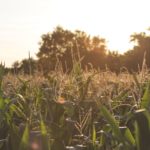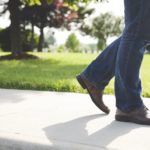I missed childhood. I was old at five, wizened at seven and a sad old creature at eight. Yet, already, I was intent on remembering every detail, every sound. I eavesdropped because nothing was ever explained to me. I learned to hang around adults and listen. I learned never to ask questions because then they would know that I had been listening. I feigned indifference, but ordered myself never to forget Prague, 1942.
I willed the year ‘1942’ to be engraved on my brain, never to be forgotten. Then, two years later, I asked myself whether 1942 was worse than 1944? I could not decide which was worse, more tragic, or more painful. Intuitively, I spoke to God. I prayed. I learned to listen to the sound of airplanes and imagine that if they were German planes, they were the enemy. If they were British or American, I felt that they would never hurt a little girl. 
The constant air raid sirens, the barricades in the streets, the uniformed SS looking for spies and collaborators, who interrogated my mother, were they worse than the Czechs? The Czechs, who tore up our papers and detained us in order to give us “back to the Russians” because we were undocumented Russians. Were the German soldiers, who, in desperation, were frantically shooting at buildings, even human? Did the Russians, driving their tanks through the streets, shooting into the air, have anything in common with us?
When I was nine, my mother and I escaped from a detention camp outside of Prague. We crawled under barbed wire fences, walked through forests by night, avoided police dogs, and hid in barns by day. We waded through a frozen river on the Czech border into Germany. I learned to fear the uniform. It made humans powerful and cruel. I also learned that the origin and allegiance of that uniform made no difference. The uniform gave strength, power and capability to a human to be either magnanimous and heroically kind, or extremely cruel, depending on the circumstances.
My mother insisted that I erase my memory, remember nothing and never speak of those years. Our lives depended on forgetting. I obeyed.
I am finally liberated from fear, am indifferent to borders, to uniforms, to authority.
Rules will be cited and used as excuses, passports will be confiscated, uniforms to give authority will be worn and flags will be waved thoughtlessly. As long as history and geography are ignored, empathy cannot thrive.
Seven decades havepassed, and the news in the past year has once again told of children and parents walking surreptitiously through European forests by night, in desperate search for safety. People from Syria, Iraq, Afghanistan and elsewhere are seeking refuge, but too often are being met with scorn. Central American children and their mothers make a similar journey to my own adopted homeland, yearning for freedom—but many who taste it are deported back to the violence they had fled. Others walk north searching simply for food, fleeing poverty. The news of these immigrant and refugee stories, continuously remind me of my own story.
And so, I have chosen to walk El Camino. I walk because I cannot forget my own story, and I will not forget that there are others facing similar perils in our world today.
I am walking in memory of all those who did not make it, and with empathy for those who continue to try. I am walking with gratitude to all those whom I have loved and who have loved me and given me peace and strength to walk now.
Immigrants are deeply imbedded in my heart; they are all my brothers and sisters, my relatives. I am related to them all.
Irene Finnigan grew up in boarding schools in Prague, Brussels and Edmonton, Alberta. She obtained her B.A degree from the University of British Columbia in French and Russian literature, taught and was a Russian Interpreter at the University of Washington Hospital. Irene has two talented and clever daughters, and two terrific grandsons and now lives in Mercer Island, WA.





